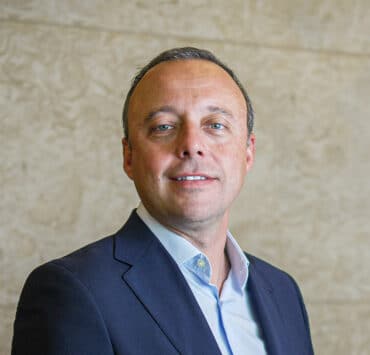|
Getting your Trinity Audio player ready...
|
Noramay Cadena believes in the notion that new talent is everywhere. Her earliest venture capital (VC) firm, MiLA Capital, invested in twenty-two companies with founders ranging in age and experience across health and wellness to aerospace industries. Today, her cofounded early stage fund, Supply Change Capital, has invested in sixteen diverse entrepreneurs creating the future of food tech to consumer packaged goods companies.
It’s a contrast to popular opinion held at her work establishment ten years ago, where she observed coworkers prioritize tenure. That company was Boeing, the world’s largest aerospace company, where she was an engineer.
“I came to work every day with people who didn’t believe that SpaceX was a viable competitor and believed that, because of Boeing’s experience and tenure, they would win,” she says, adding that “I realized that I belonged to a different environment, and one that was faster.”
Since then, SpaceX has in fact been a competitor to Boeing, launching successfully ahead of the tenured company in a race to send NASA astronauts to space. Today, the company is on track to fulfilling all six of its contracted NASA flights.
Instead of tenure alone, it’s SpaceX’s speed and adaptability that experts have attributed to the company’s success. And it’s this kind of operational pace, combined with transparency and community building, that a founder like Cadena leverages to “get things done.”
“If I would have been at a large firm . . . I would not have learned all it takes to keep a firm running, which is essential for Supply Change Capital,” she says.
“We are thinking about climate as a supply side force and culture as a demand side force. We have not slowed down our investment pace since we started in 2021.”
Noramay Cadena
As it turns out, Cadena was as essential to the venture field as it was to her in building her firms. When she joined the industry as managing partner with the introduction of MiLA Capital in 2015, she was one of fewer than ten Latinas to be at this level. She notes that eight years later the growth is tangible, with steady increase in assets under management.
“It reinforces what we’ve been saying,” she says, “that there’s incredible opportunity in investing in Latina founders.”
Just this summer, Supply Change Capital closed a debut $40 million fund to invest in the future of food. Latino-led start-ups received only 1 percent of VC investments, but Latino, Black, and/or female founders and CEOs comprise 80 percent of Supply Change Capital’s portfolio. To date, its portfolio features companies the founders believe can lead a more inclusive, resilient, and climate-friendly system. These include food tech companies such as Hyfé and Kadeya, which use food processing wastewater for biomanufacturing, reimagining closed loop beverage systems to reduce need for single-use plastic water bottles.
Together, Cadena and her cofounder Shayna Harris hold the philosophy of investing in new talent with big visions. They also bring decades of experience to the fund, with Harris’s two decades of investing and operating in the food and supply chain combined with Cadena’s engineering background and being two-time VC firm founder. After meeting in 2009 at the Sloan MIT School of Management, they kept in touch until the timing was right to combine their expertise, craft their own work environment, and partner in a venture.
“We are thinking about climate as a supply side force and culture as a demand side force,” Cadena says, noting that she and her partner continue to see strong opportunities in the space. “We have not slowed down our investment pace since we started in 2021.”
“I realized that I belonged to a different environment, and one that was faster.”
Noramay Cadena
As SOMOS VC (which Cadena sat on the founding board for) illustrates, there’s plenty of work still ahead, with minority- and women-led firms managing about 1.4 percent of VC and private equity industries.
What is certain is that Cadena continues to source for talent in new places. Her fund’s latest event focused on supporting women founders in food tech that have raised less than $1 million in capital. The grand prize was $25,000 in equity-free capital, plus a pass and flight to SXSW 2024.
In 2022, Cadena gave Moneda Moves a powerful interview where she shared her career trajectory and cited one of her biggest money learnings as seeking and creating opportunities for one’s self. When she reflects on her journey to VC today, she says taking a step back to see the bigger picture was one of the biggest pieces of advice she’d give her younger self.
“The hardest part for me when I started in venture was getting out of the day-to-day and thinking about the small stuff,” she says, recalling that she wondered how she would make car payments. A major shift in thinking was “believing and expecting that your reality can be so drastically different within the generation.”
Today, Cadena is less focused on smaller details and more focused on the future than ever. Her questions today: What is the next billion-dollar company going to be? Then it’s followed quickly by: who can build that?

